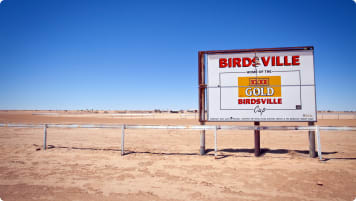The Van Diemen's Land Company
Explore the history of the Van Diemen's Land Company, oldest continually operating Australian chartered company, with an economic and cultural heritage across north-west Tasmania. Odyssey offers small group tours for mature and senior travellers, couples, and solo travelers to Australia and Tasmania.
26 Feb 21 · 6 mins read

The Van Diemen’s Land Company
Dating all the way back to 1824, during the early period of European settlement in Tasmania, the Van Diemen’s land Company is an indelible part of the Tasmanian story as a whole, with the company effectively assuming de facto control over a huge swathe of Tasmania’s north-western territory, and shaping the development of the island’s towns, industries and agriculture for years to come. Formed by a group of British merchants and business interests in London, the story of the Van Diemen’s Land company shares in Tasmania’s larger, and somewhat spotted history of convict, and indentured labour, as well as its treatment of Tasmania’s Aboriginal population. Despite this darker character, which colours much of Tasmania’s history of early settlement, the story of the Van Diemen’s Land Company also tells a story of progress and development over the years, including the exploration of Tasmania’s rugged interior, with the area spanning from Emu Bay in the east, to Cape Grim in the west bearing traces of this legacy till this day. Odyssey tours will encounter some of this history along our Small group tour of Tasmania: Exploring Colonial History, particularly with the idyllic seaside town of Stanley, previously known as Circular Head, being one of the focal points of the Company’s operations. Here the group will encounter vestiges of this legacy both at the Highfield historic site, as well as through the historic colonial era buildings found throughout the town. The Van Diemen’s land company even continues to operate today, making it the last Australian chartered company still operating.
Related Tours
Odyssey Tours of Tasmania

days
Mar, Aug, Sep, Oct, Nov +3Tours of Tasmania; exploring colonial history
Visiting Tasmania
Escorted program for couples and single travellers visiting Hobart, Launceston through the Tamar Valley along the rugged coastline of the north coast and heading back south to the pristine wilderness around Cradle Mountain and then on through Strahan, Queenstown and past Lake St Clair, before arriving back in Hobart. This 18 day small group tours to Tasmania for mature and senior travellers interested in the colonial history of Tasmania. We follow the footsteps of the colonists, visiting the churches where they worshipped, the houses in which they lived, the taverns where they drank and some of the mills in which they worked.

9 days
Mar, Nov, OctSmall group tour of Flinders Island
Visiting Tasmania
Explore and learn about Flinders Island on an escorted small group tour for mature and senior travellers who enjoy a walking holiday. For couples or solo travellers. We also explore Cradle Mountain and Launceston.
From A$6,950 AUD
View Tour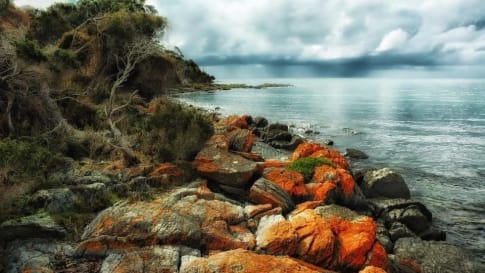
19 days
Mar, Nov, FebDiscovering Tasmania’s Wildlife
Visiting Tasmania
Small group tour of up to 15 mature and seniors travellers visiting and learning about Tasmania's wildlife and history. Visit Maria Island, Freycinet peninsula, Cradle Mountain, Strahan, Lake St Clair and Bruny Island over 16 days.
From A$11,450 AUD
View Tour
days
Feb, Mar, Apr, Nov, JanMotorcycle tour of Tasmania for mature riders
Visiting Tasmania
Escorted Small group tour of up to 8 mature and seniors Motorcycle riders visiting and learning about Tasmania's wildlife and history. Visit Maria Island, Freycinet peninsula, Cradle Mountain, Strahan, Lake St Clair and Bruny Island over 14 days.
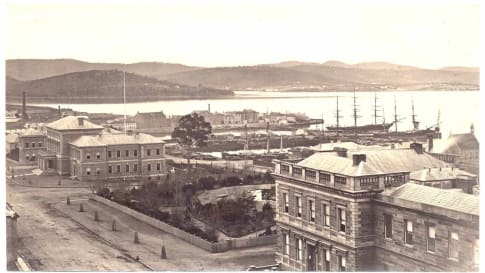
days
JanConvicts and Emigrants in Early Tasmania | Summer School in Hobart, Tasmania
Visiting Tasmania
The course focuses on Tasmania and its similarities and differences from the ‘mainland’ as a convict colony, with a particular focus on women's experiences.
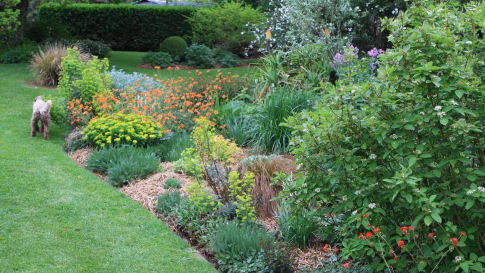
days
Jan, MarHouses and Gardens of Southern Tasmania | Summer School in Hobart, Tasmania
Visiting Tasmania
Houses and gardens of Southern Tasmania runs for five days and takes in ten different gardens and three heritage-listed houses. We will step back into the past and experience life as it was two centuries ago.

days
JanTasmanian Colonial homes, centring on Hobart and Launceston | Summer School in Hobart, Tasmania
Visiting Tasmania
Summer School tour that examines the Historic homes and the history of their occupiers. Visiting Launceston, Hobart and other historic cities in Tasmania.
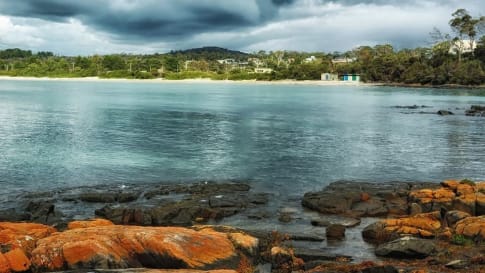
days
JanTasmanian Wilderness | Summer School in Hobart, Tasmania
Visiting Tasmania
The Tasmania Wilderness summer school is held annually in Hobart in early January. This summer school allows you to experience the great western wilderness of Tasmania, while staying at a comfortable ‘base camp’ in a Hobart hotel!
History and Development
The Van Diemen’s Land company was first formed in 1824, with a group of wool merchants and mill operators, coming together with bankers and investors in London, with the aim to develop northwestern Tasmania as productive farming land, primarily for the export of wool. Britain at this time was the industrial powerhouse of Europe, with the British midlands in particular manufacturing huge amounts of cloth, and other textile products. Up until this point, Britain had yet to secure a large enough source of fine grade wool from its colonial ventures, and relied heavily on imports from both Spain and Italy for its raw inputs. In this context, the establishment of the Van Diemen’s Land company, much like the Australian Agricultural company in New South Wales, was designed to plug the supply gap, and sate the growing demands of Industrial Britain. With the support of Tasmania’s former lieutenant-governor William Sorrell, and the expertise of Edward Curr, the company secured 250,000 acres of land in the colony, granted by the Royal Charter of King George IV. Though this was less than the original 500,000 requested, it eventually amounted to about 350,000, following the subsequent expansion of the company’s operations. The designs of the company were incredibly ambitious, not only in the exploitation of the land for agricultural use, but also in the construction of all the associated infrastructure to support local settlement, including schools, houses, bridges, roads, and ports.
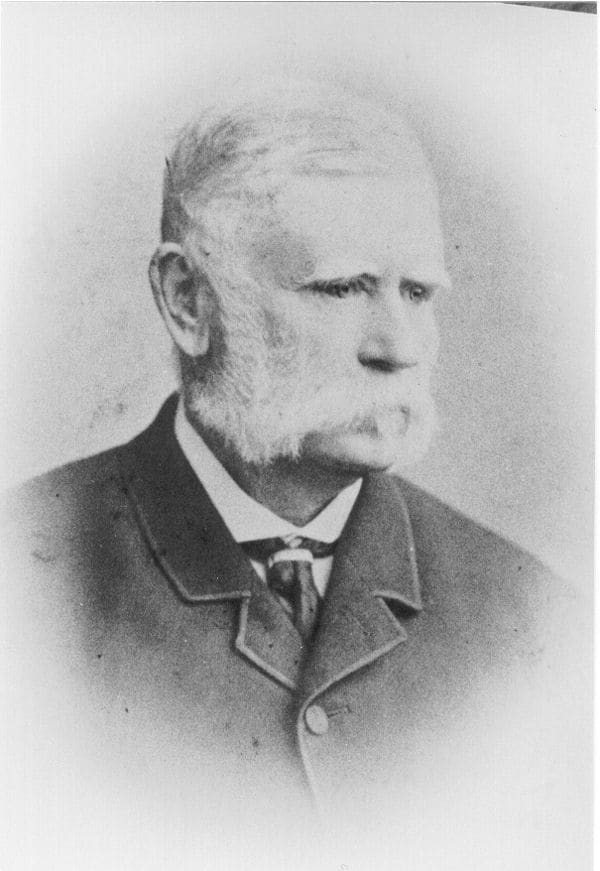
The site of the founding settlement was a contentious issue following the arrival of Curr in Hobart, with the remote location and time pressure forcing the issue sooner than expected. The site of ‘Circular head’ (Now Stanley), was soon after chosen as the headquarters of the Van Diemen’s land company’s operations. The first wave of settlers experienced a number of hardships in establishing the settlement, with inadequate supplies leaving many with meagre rations, threadbare clothing, and mostly primitive shelters. These conditions made competition for scarce resources a contentious issue, with the lack of rum in particular causing a number of brawls between convict, and free labourers. Farming in the early years was also barely enough to maintain subsistence, with one of the main problems being a large number of settlers neglecting to recognize the timings of the seasons in the southern hemisphere as different to those in the north. Despite this, as the years progressed a number of reasonably productive areas emerged, such as the Surrey and Hampshire hills regions, which produced grain, sheep, and wool on a moderate scale. As the venture grew, the company secured an additional 150,000 acres of land, including a large area around Cape Grim, as well as a portion along the Emu Bay road, which now situated the headquarters in Circular Head near the centre of the company’s lands.
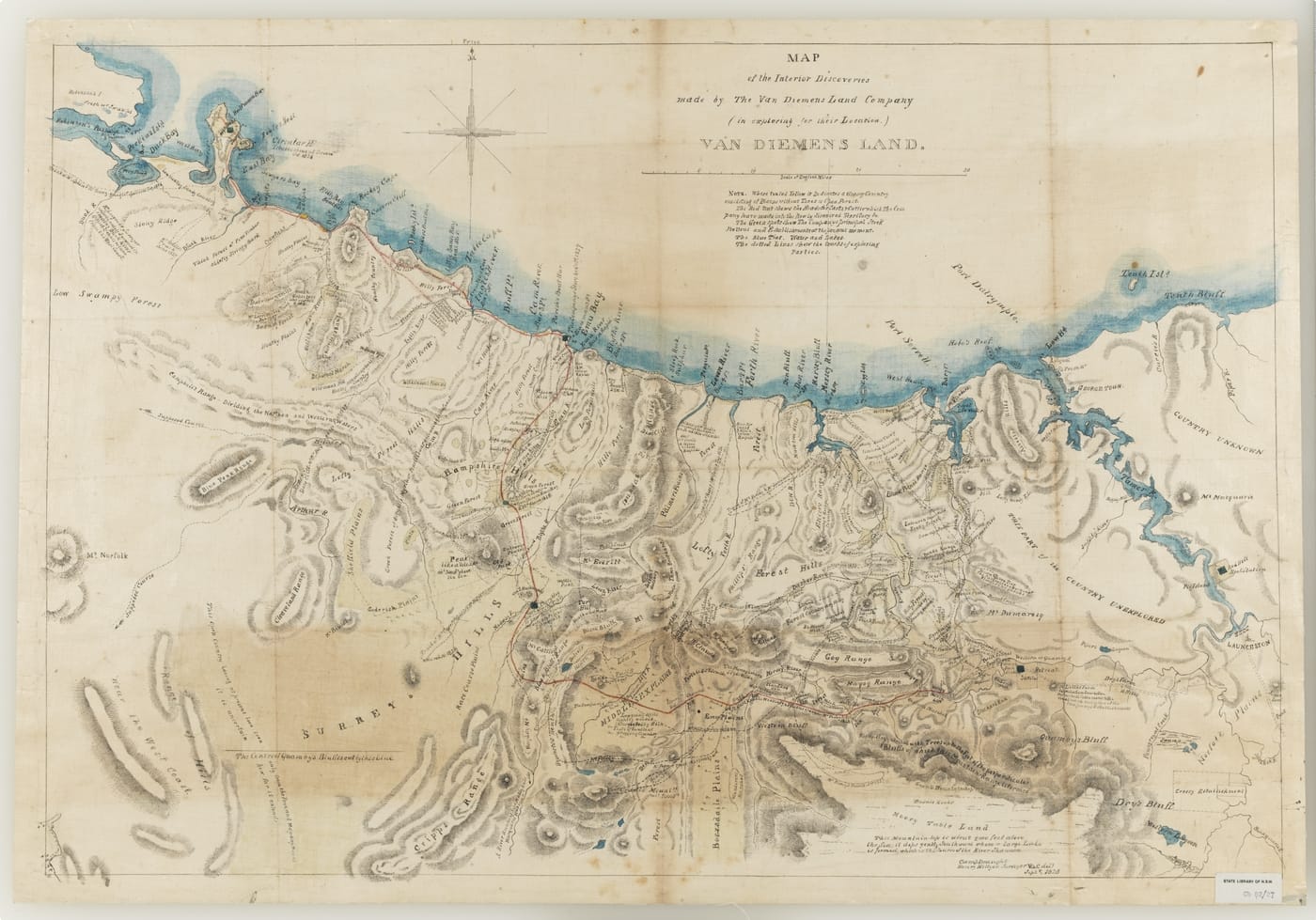
The company progressed slowly in the subsequent decades, with most of their activities barely breaking even, and prompting ire back in London. The early 1830’s also saw a huge number of sheep dying, being unsuited to the local climate, ultimately causing the principal objective of the venture, wool, to fail. Despite this, the company earned a decent amount from its cattle stock, as well as from timber exports, and renting to tenant farmers, which it began earlier in 1829. This early period also saw some of the company’s more notorious years, with conflicts between settlers and Tasmanian Aboriginals leading to the deaths of a number of Indigenous people, despite the company’s officially tolerant position. The bounties the company placed on the Tasmanian Tiger in 1930 was also one of the contributing factors towards this native species’ eventual extinction, in all pointing to a troubled relationship between the company and its surroundings. Even internally, a number a revolts and confrontations with convict labour squads occurred, with one of the most notable incidents being the 1935 attempt to seize the town of Circular Head and the company’s ship. This use of convict labour was particularly important in the company’s early years, with a high demand for labour both by tenant farmers, as well as for the construction of basic infrastructure in the area. The company even went so far as to financially benefit from the receipt of convict labour, using a rent deduction loophole to actually get paid for receiving them.
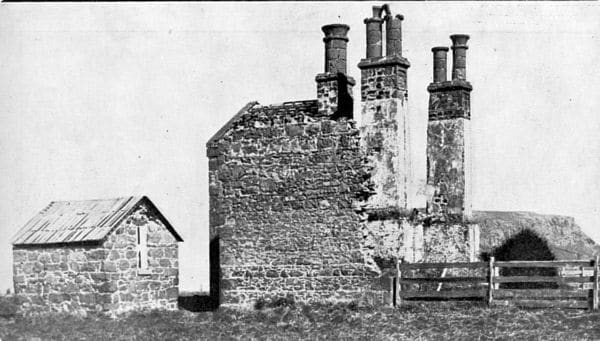
The 1840’s saw tensions arise between the company and the colonial government, leading to the dismissal of the ‘disciplinarian’ Curr, being replaced by James Gibson in 1841. Gibson’s tenure saw the company shift its focus to that of real estate, increasing the amount of tenant farmers from 241 in 1841, to about 846 over the span of ten years, it was also during this time that the company saw the sale of cattle grow to be the company’s most profitable venture. The production of other resources, such as timber, bricks, and later tin saw the company spawn a number of subsidiaries over the subsequent years, with a huge amount of north-west Tasmania’s industry, towns, and physical landscape coming to be shaped by the activities of the Van Diemen’s Land Company. As the years progressed, the company’s holdings shrank as various regions began to develop autonomously, with the total area reducing to 91,000 acres in 1947, and down to 50,000 by the 1970s. Despite this, the Van Diemen’s land company remained a influential force, remaining Australia’s largest dairy company till this day, with an incredibly long history as Australia’s oldest operating chartered company. In more recent years the company was acquired by New Zealand’s Taranaki Investment Management in 1993, who continued to operate until the company’s highly controversial 2016 sale to the Chinese Moon Lake Investments. Interestingly, this progressions means that this historic Australian company has yet to be owned by an Australian over its history. Odyssey Traveller will explore more of the Van Diemen Land Company’s history as part of our small group tours of Tasmania. A small group tour is one of the best ways for an in depth experience to any of the locations we visit, with Odyssey specialising in this kind of tour. Odyssey offers an engaged, and intimate tour to Tasmania ideal for seniors, solo travellers, or couples heading to Tasmania and Australia.
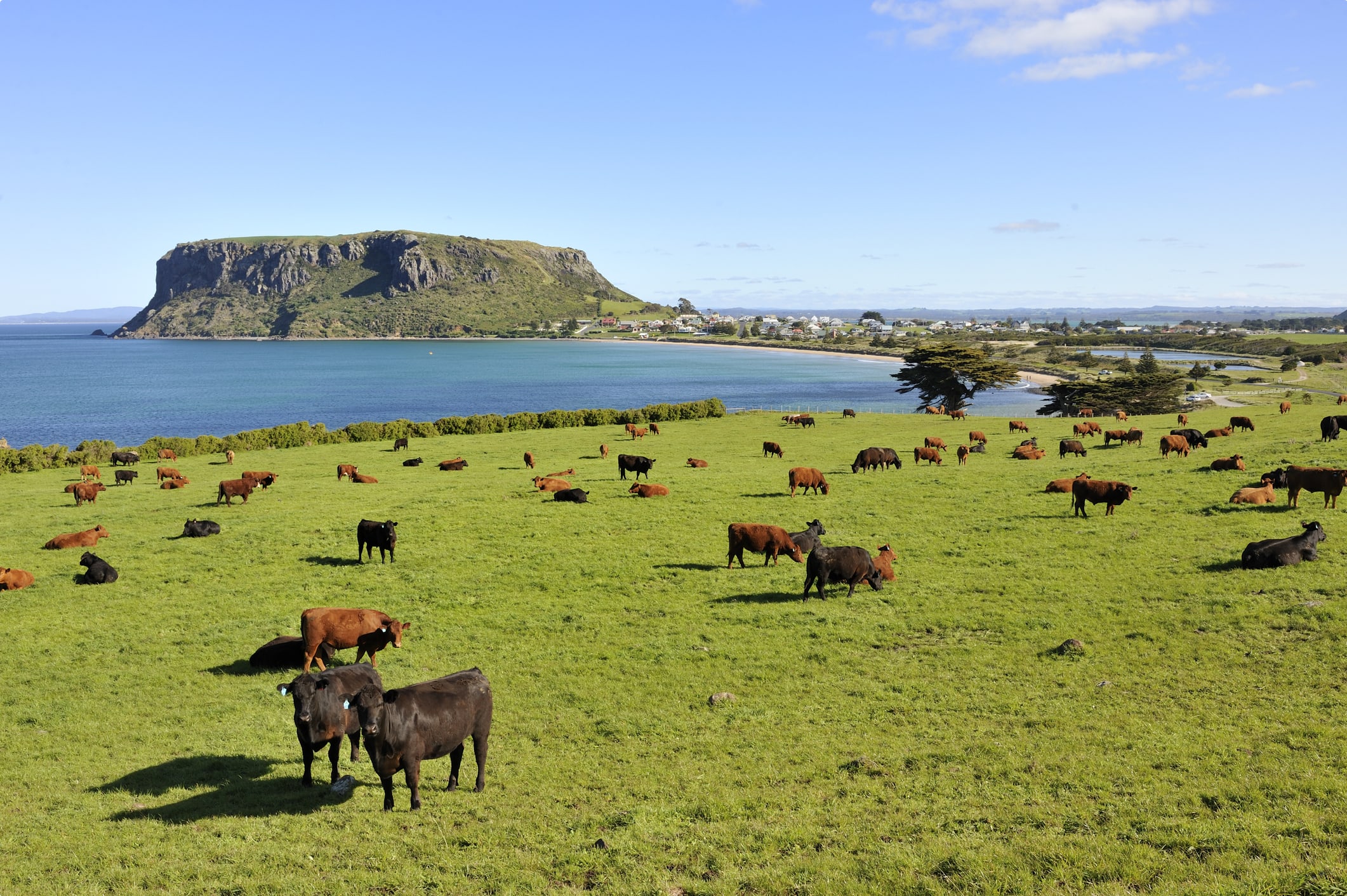
External articles to assist you on your visit to Tasmania:
Articles

Bass & Flinders Mapping of Tasmania
Learn about Tasmania history on an escorted small group tours for mature and senior couples and solo travellers interested in Aboriginal, wildlife and colonial history of Tasmania, Australia.

Bruny Island, Tasmania
Explore the sights and history of Bruny Island, with its soaring dolomite cliffs and white sand beaches, it is home to some of Tasmania's richest natural heritage. Odyssey offers small group tours for mature and senior travellers, couples, and solo travelers to Australia and Tasmania.

Cradle Mountain, Tasmania
One of Tasmania's most iconic natural wilderness destinations. Explore Cradle mountain on a seniors small group tour of Tasmania designed for active couples and solo travellers or select another iconic Australian or New Zealand tour.

Flinders Island, Tasmania
Learn more about this island in the Bass strait as you prepare for week long small group walking tour of the island that begins and ends in Launceston. For fit mature and senior travellers, couples or singles with an interest wildlife and history.

Freycinet Peninsula, Tasmania
Small group tour of the Tasmanian wilderness for senior travellers. This tour for active couples and solo travellers explores Wineglass Bay on the Freycinet Peninsula is one of the jewels of Tasmania's east coast, walking a section of the bay of fires walk and learning about Aboriginal history.

Highlights of Australia: Dutch tulips of Table Cape, Tasmania
Highlights of Australia: Dutch tulips of Table Cape, Tasmania Australian tulip lovers take note. While thanks to coronavirus, a trip to the world famous Kukenhof Gardens in the Netherlands might be off the table for…
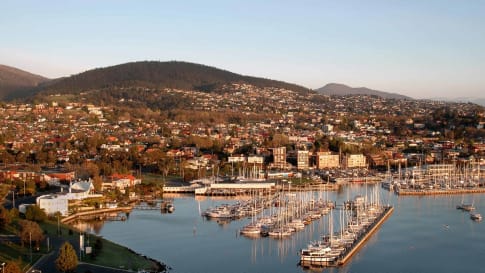
Hobart, Tasmania
Join some of many classes offered in the summer schools each January for a fortnight in this city or take a small group tour for senior and mature travelers of Tasmania wildlife & history.
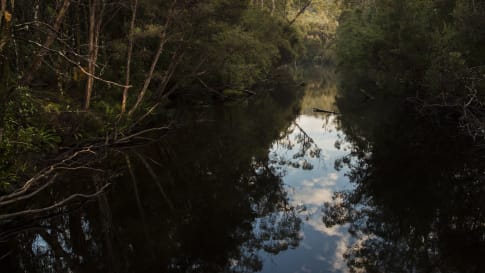
Ice age archaeological sites of the Tasmanian Wilderness World Heritage Area, Australia
Ice age archaeological sites of the Tasmanian Wilderness World Heritage Area, Australia The Franklin-Gordon Wild Rivers National Park is one of the most remote places in Australia, a wild labyrinth of winding gorges, rushing rapids,…

Lake St Clair, Tasmania
Australia's deepest lake; Lake St Clair formed by ice during several glaciations over the past two million years. Visit and learn on a escorted small group tour of Tasmania for seniors. For active couples and solo travellers exploring Australian wilderness.

Launceston, advice for small group tours
Launceston, learn about this early British settlement in Tasmania on the Derwent river as well other pieces on the island state. Article supports small group tours for mature and senior travellers across Australia.
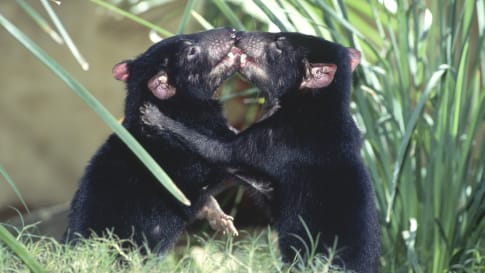
Saving the Tasmanian Devil
The Tasmanian Devil is truly one of a kind – the world’s largest surviving carnivorous marsupial. See this and other Australian native wildlife icons in Tasmania on a escorted small group tour for mature and senior travellers, couples or solo travellers to Australia.
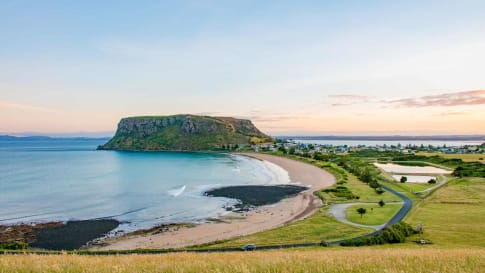
Stanley, Tasmania
Explore the sights and history of Stanley, with its historic colonial buildings and pristine natural landscape, Stanley is one of North West Tasmania's highlights. Odyssey offers small group tours for mature and senior travellers, couples, and solo travelers to Australia and Tasmania.

Strahan and the Gordon River, Tasmania
Learn and explore Strahan and the Gordon river on Tasmania's west coast on a small group tour for senior travellers. This 16 day is for active couples and solo travellers who seek to learn as they travel. View some of the Best tours of New Zealand and Australia.
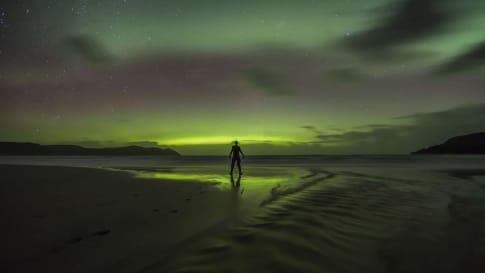
The Aurora Australis
Witness the incredible sights of the Aurora Australis, the Southern Lights. Much like its northern counterpart, the dancing lights of the Aurora are a magical, and unforgettable sight. For the fortunate traveller, you just might catch a glimpse of this phenomenon on your trip to Tasmania or New Zealand. Odyssey offers small group tours for mature and senior travellers, couples, and solo travelers to Australia and New Zealand.

The Tarkine Rainforest, Tasmania
The Tarkine coast mapped by Bass and Flinders is a unique forest environment, explored on a small group tour for mature and senior travellers for couples or solo participants. The northwest of Tasmania including this cool temperate rainforest is a conservation area rich in Aboriginal history from the ice age.
